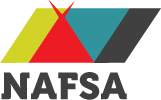WASHINGTON, DC (March 15, 2013) – On the heels of a recent settlement between the Federal Trade Commission and Automatic Electronic Checking Inc. (AEC), the Native American Financial Services Association (NAFSA) hailed the decision as a step toward increased consumer confidence in financial transactions. Under the ruling, AEC was found to have debited millions of dollars from tens of thousands of bank accounts without the holders’ consent.
“We applaud efforts to crack down on unfair or misleading trade practices that defraud consumers and abuse consumer trust,” said Barry Brandon, Executive Director of NAFSA. “Every NAFSA member is expected to abide by a set of industry-leading best practices, ensuring that our members honor consumer rights, protect their privacy, treat them fairly, and always strive to offer innovative financial solutions.”
NAFSA’s best practices are comprised of lending and operational standards, which ensure that businesses operate as a legitimate “arm of the tribe,” owned by, operated by, and benefitting a federally-recognized sovereign nation. In addition, they require member tribes to follow the principles detailed in federal financial services laws to the extent that they are applicable and honor tribal sovereignty. Through these best practices, NAFSA has established itself as an industry leader, an example for others in the lending space to aspire to, and a safeguard against actions like those undertaken by AEC.
A full listing of NAFSA’s best practices is available at https://www.mynafsa.org/best-practices/.
About NAFSA
The Native American Financial Services Association (NAFSA) formed in 2012 to
advocate for Native American sovereign rights and enable tribes to offer responsible online lending
products. Through the protection of consumer rights and sovereign immunity, NAFSA provides vital
services to tribally operated lenders serving the under-banked with better short term financial
services, furthering economic development opportunities in Indian Country.









